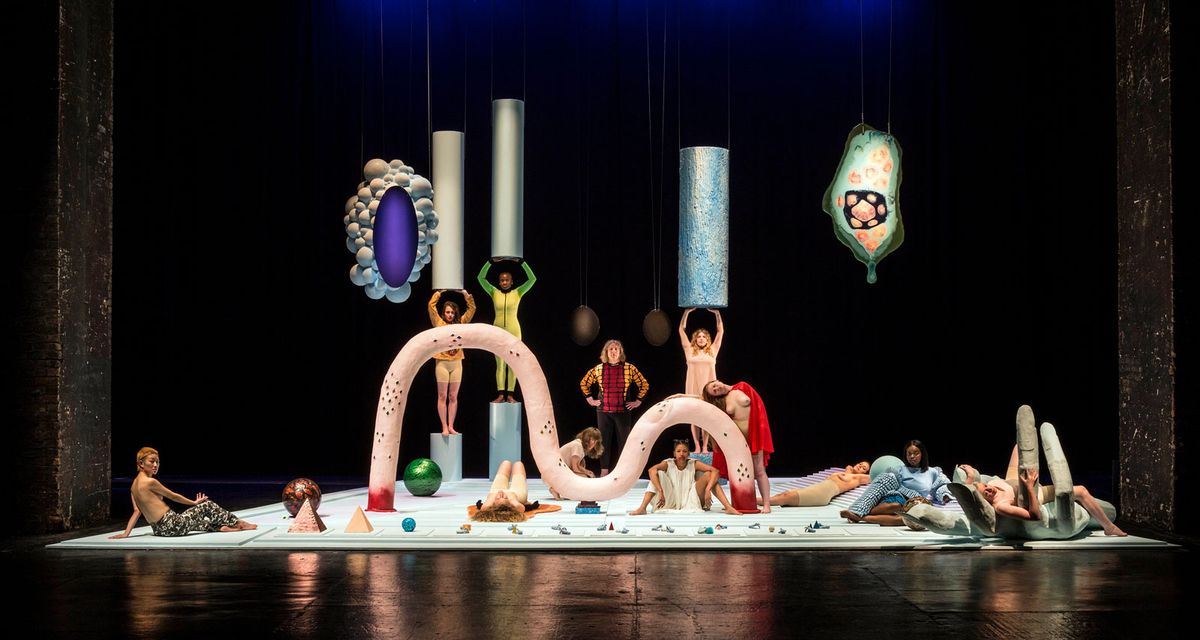Four artists whose work gives voice to the marginalised have been nominated for this year’s Turner Prize, to be held for the first time at Turner Contemporary in Margate.
Those in the running for the £40,000 award are Lawrence Abu Hamdan, Helen Cammock, Oscar Murillo and Tai Shani. Noting the diversity of their practice, Alex Farquharson, the director of Tate Britain and the chairman of the jury, says that performance and sound are common themes “often because their work seeks to foreground the voices of those who have been marginalised by dominant historical accounts or accounts of society today–because of their gender and in many other ways”.
However, politics of a very different kind threatened to overshadow the press conference on Wednesday, with questions raised over Stagecoach’s sponsorship of the prize this year. The bus firm’s chairman Brian Souter controversially funded a campaign in 2000 to retain Section 28, which prevented local authorities from “promoting” homosexuality.
Farquharson said the sponsorship was a matter for the “hosting venue”, while Victoria Pomery, the director of Turner Contemporary, said the institution “had to to take a range of factors into consideration when looking at sponsors”. Stagecoach later released a statement saying it “does not tolerate discrimination or harassment of any kind based on disability, gender, gender re-assignment, sexual orientation, religion, belief, age, nationality, race or ethnic origin”.
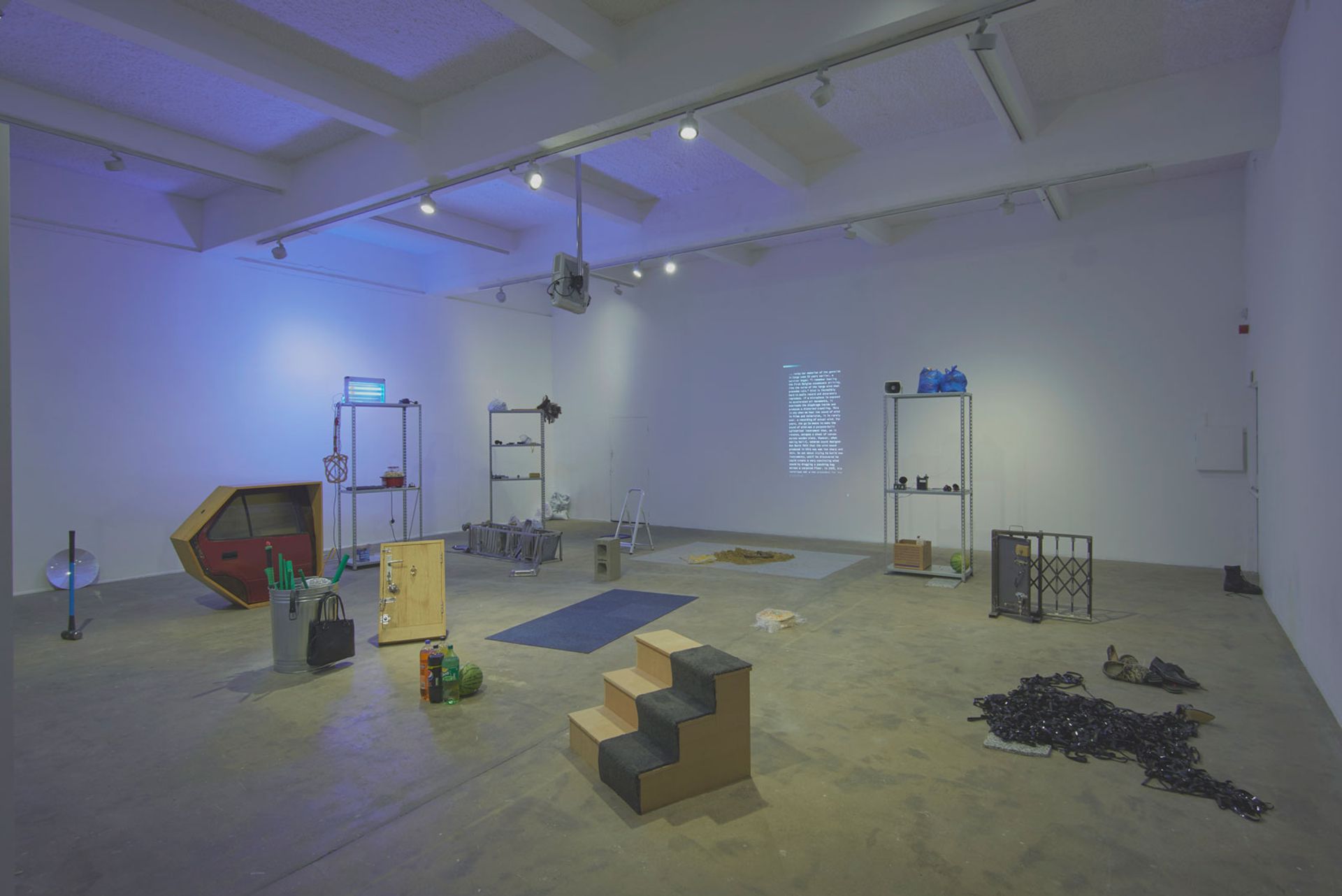
Lawrence Abu Hamdan exhibition Earwitness Inventory at Chisenhale Gallery, London 2018 Courtesy of the artist and Chisenhale Gallery, London. Photo © Andy Keate
The jurors describe Beirut-based Abu Hamdan as an “artist and audio investigator, whose work explores the role of sound and voice within the law and human rights”. Among other shows, he has been nominated for Earwitness Theatre at Chisenhale Gallery last year, which recalled, via sounds such as the stomping feet of guards or a body being beaten with a Pepsi bottle, the Syrian regime prison of Saydnaya.
Voice is central to the practice of London-based Cammock, who won last year’s Max Mara Prize for Women. Alessio Antoniolli, the director of Gasworks & Triangle Network and Turner Prize juror, says her work questions “who speaks on behalf of whom and on what terms”.
Cammock’s exhibition, The Long Note, held at the Void Gallery in Derry last autumn, celebrated the involvement of women in the civil rights movement in Derry in 1968, the year the Troubles began in Northern Ireland.
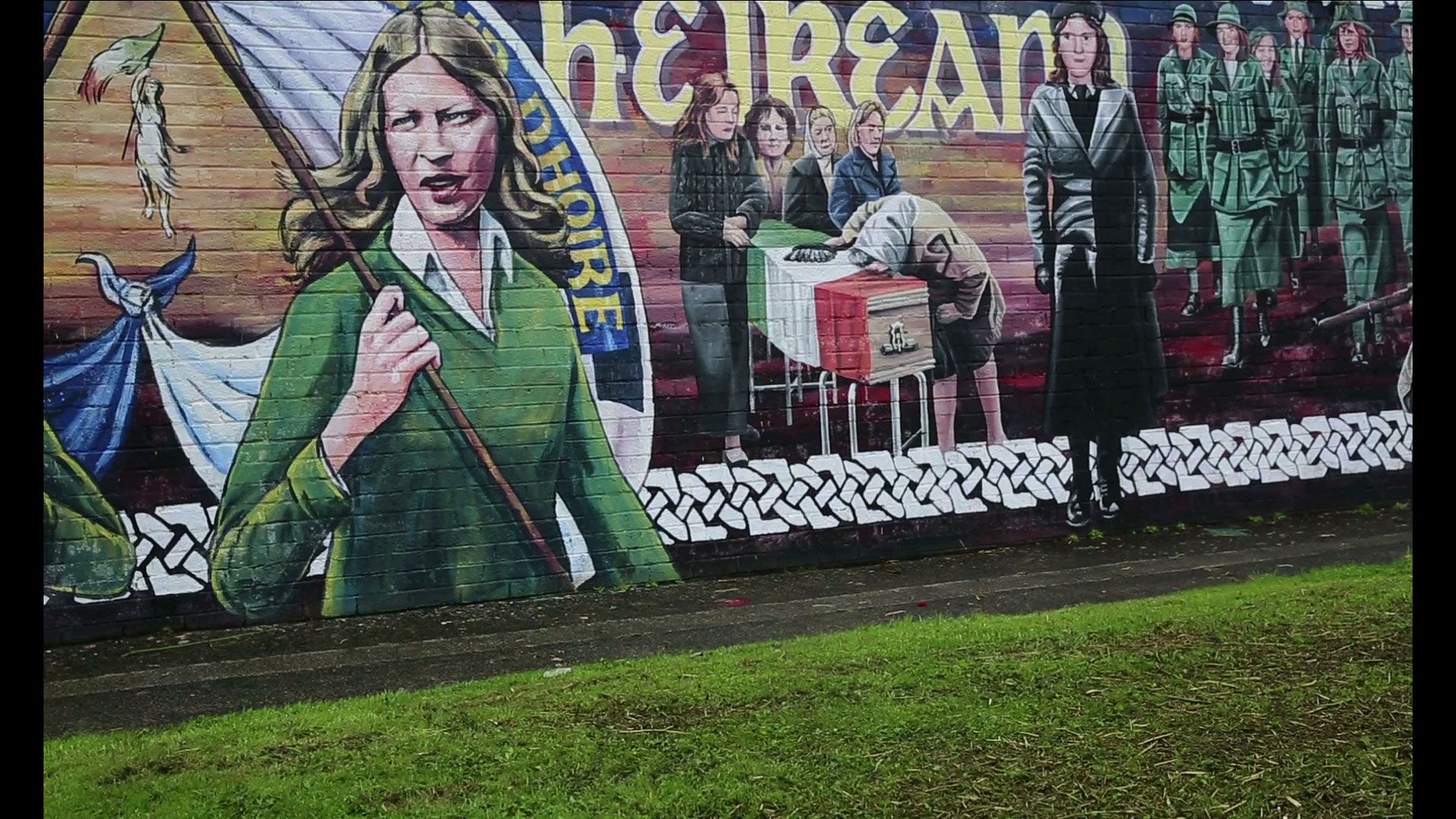
Helen Cammock, video still from The Long Note (2018) Courtesy the artist
Colombian-born Murillo, who lives and works in London and whose work often deals with migration, has enjoyed a remarkable rise to prominence, going from cleaner in 2012 to art market darling a year later. The artist has been vocal about his views of the market (“art to me has never been about paying the bills,” he told the Evening Standard in 2015), and the Turner Prize juror’s take a similar view.
“The intense interest in his early paintings really overshadowed the range of his work,” Farquharson says. “His non-profit exhibitions have shown the true breadth of his practice; this feels like a timely nomination.” Murillo’s Violent Amnesia, currently on show at Kettle’s Yard in Cambridge, features black canvases inspired by a flight he took from Tel Aviv to Baku, during which he became aware of a dead body in the hold, being transported home by family members.
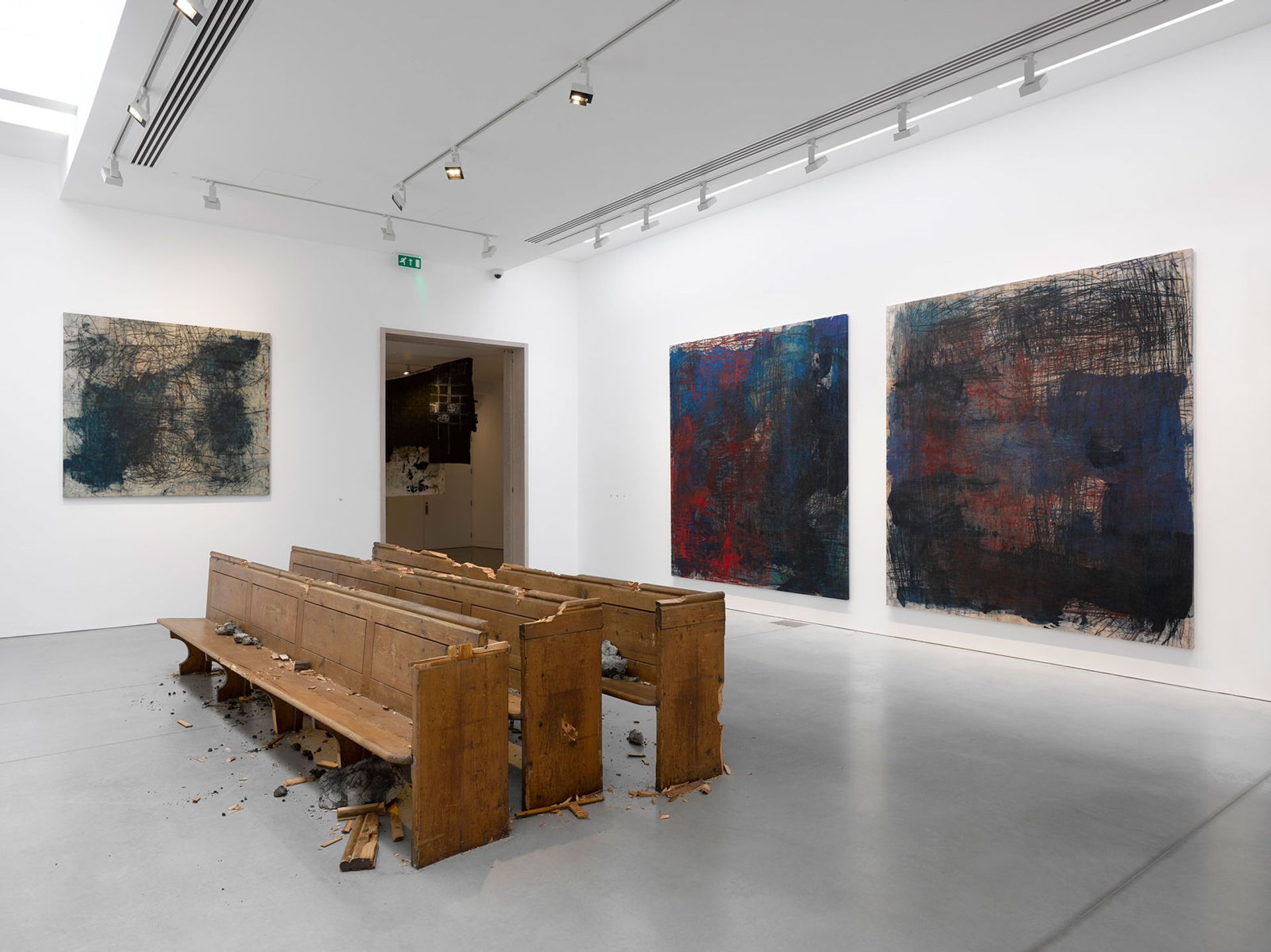
Oscar Murillo's exhibition Violent Amnesia at Kettle’s Yard Photograph by Jack Hems. © Oscar Murillo. Courtesy the artist and David Zwirner.
Over the past four years, the self-taught London-based artist Tai Shani has been developing her ongoing project Dark Continent, which, according to the jurors, “uses the structure of an allegorical city of women to explore feminine subjectivity and experience, through a gothic/sci-fi lens”.
Shani has been outspoken about the difficulties of making a living from a practice that defies categorisation. “I get commissions and I get fees, but those fees are no way reflective of what it takes to make the work. They can range from £300 to £3,000,” she told The Art Newspaper Podcast. “There’s no correlations, there’s no standard, there’s no regulation.”
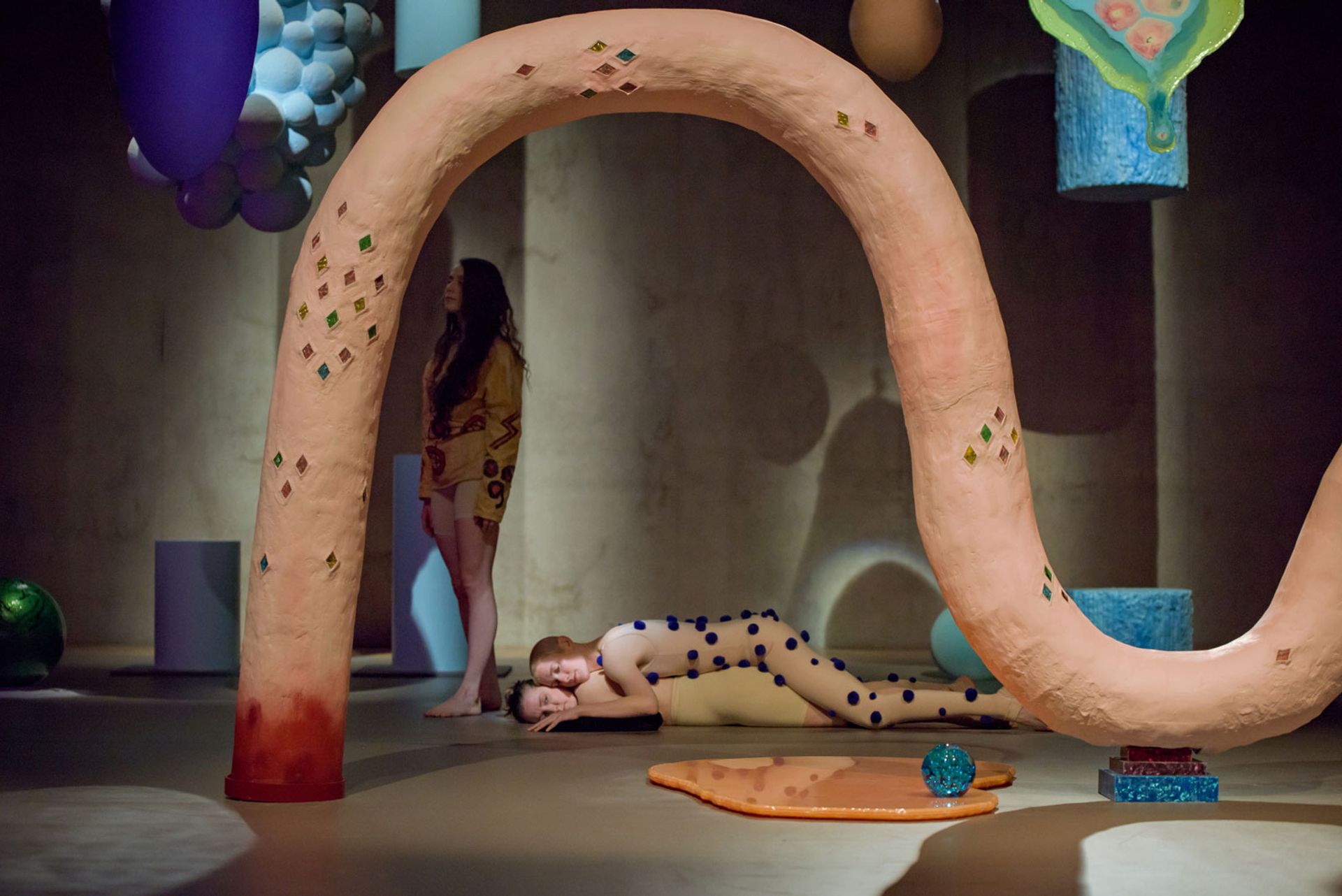
Tai Shani, installation view of DC: Semiramis, Glasgow International 2018 © Keith Hunter. Courtesy the artist.
As for the Turner Prize exhibition, which opens at Turner Contemporary on 28 September, it is the “first time it has been held outside London at a place so associated with Turner–a great innovator and experimenter in his own day”, Farquharson says.
Pomery says the Turner Prize will contribute to the ongoing regeneration of Margate and Kent sparked by the museum opening ten years ago. “Many entrepreneurs, creatives and artists have moved to east Kent, inspired by Turner Contemporary and those famous skies so beloved by Turner. We plan to expand the impact of the prize across the county, to connect with artists’ studios and coincide with the sixth Margate Now festival.”
• This article was updated to include a statement from Stagecoach
• For an interview with Turner Prize shortlisted artist Tai Shani, listen to The Art Newspaper Podcast.


